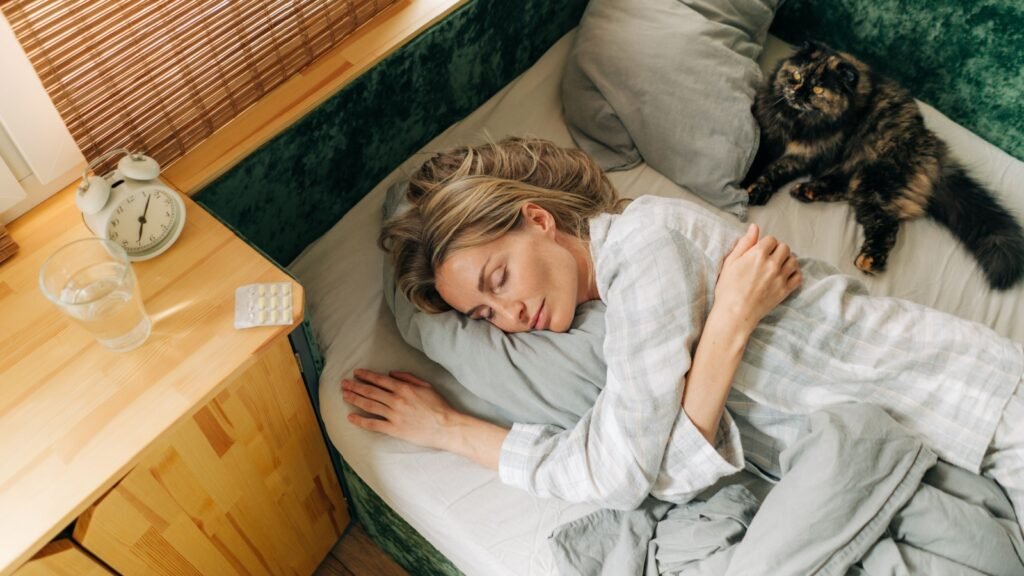Have you ever struggled to get a good night’s sleep? You’re not alone! By making a few simple changes to your daily habits and bedtime routine, you can improve your sleep hygiene and wake up feeling refreshed and ready to take on the world.

Good quality sleep seems like such a simple thing yet it has a truly profound impact on us. How we feel, our mental and physical health, our risk of illness and injury, our performance and productivity, our mood. Everything we do and feel is tied to how well we sleep.
So you can see that getting enough high-quality sleep is super-important.
Stick to a Consistent Sleep Schedule
Try to go to bed and wake up at the same time every day, even on weekends. This helps regulate your body’s internal clock, making it easier to fall asleep and wake up naturally.
Create a Relaxing Bedtime Routine
Develop a calming pre-sleep routine, such as taking a warm bath, reading a book, or practicing gentle stretches. This signals to your body that it’s time to wind down and prepare for sleep.
Keep Your Bedroom Dark, Quiet, and Cool
Ensure your sleeping environment is conducive to rest by keeping it dark, quiet, and cool. Use blackout curtains, earplugs, or a white noise machine if needed. I have an energy-efficient fan running that keeps the room comfortably cool, too, as I like to be snuggled under my bedding without getting too hot.
Avoid Screens Before Bedtime

The blue light emitted by electronic devices can interfere with your body’s production of the sleep hormone melatonin. Try to avoid screens for at least an hour before bed. I’m really bad at this one, and it’s something I need to keep working on.
Get Regular Exercise
Engaging in physical activity during the day can help you fall asleep more easily at night. Just be sure to finish your workout a few hours before bedtime to allow your body time to relax.
Limit Caffeine and Alcohol Intake
Both caffeine and alcohol can disrupt your sleep, so it’s best to avoid them in the hours leading up to bedtime. If you do enjoy a cup of coffee or a glass of wine, do so in moderation and earlier in the day.
Manage Stress and Anxiety
Stress and anxiety can make it difficult to fall asleep and stay asleep. Practice stress-reducing techniques like deep breathing, meditation, or journaling to help calm your mind before bed.
Use Your Bed Only for Sleep and Intimacy
Avoid working, eating, or watching TV in bed. This helps your brain associate your bed with sleep, making it easier to drift off when it’s time to rest.
Avoid Large Meals Close to Bedtime
Eating a big meal right before bed can cause discomfort and disrupt your sleep. If you’re hungry, opt for a light, healthy snack instead.
Expose Yourself to Natural Light During the Day
Spending time in natural light during the day helps regulate your body’s circadian rhythm, promoting better sleep at night. Take a walk outside or sit near a window when possible.
Don’t Force Sleep
If you can’t fall asleep within 20-30 minutes, don’t lie in bed feeling frustrated. Instead, get up and do a calming activity until you feel sleepy, then try again.
Consider a Comfortable Mattress and Pillows
Investing in a comfortable, supportive mattress and pillows can make a big difference in the quality of your sleep. Upgrading my mattress was one of the best things I ever did, as it had such a profound difference in how well I slept and got rid of the achy back and legs from my old cheaper mattress.
